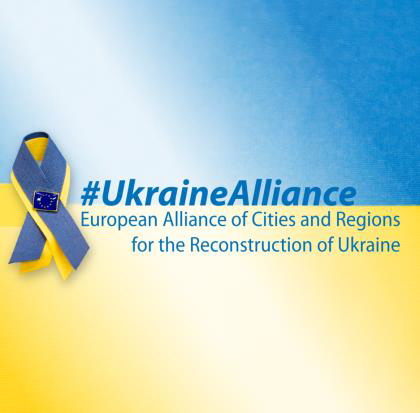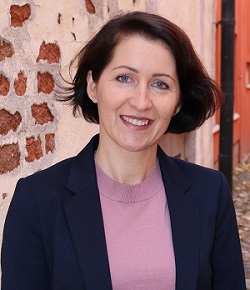Projects
Ongoing projects
EMPEREST – Eliminating Micro-Pollutants from Effluents for Reuse Strategies
The project EMPEREST tests advanced treatment technology that helps water utilities and companies better remove organic micropollutants such as PFAS from wastewater.
The EMPEREST project supports local authorities, service providers and policy-making community by strengthening the sustainable water management cycle. PFAS (Per- and polyfluoroalkyl substances) discharge management is one of the most pressing environmental challenges in the Baltic Sea Region. The holistic approach of the project to the elimination of PFAS and other persistent organic pollutants incorporates regional strategies for monitoring and assessment, technological advances in wastewater treatment, risk management assessment for cities, and training materials for water experts.
UBC Sustainable Cities Commission is leading the EMPEREST project, cooperating with expert partners on all project activities.
Funding: Interreg Baltic Sea Region Programme
Duration: 01.01.2023 – 31.12.2025
Budget: 5.4M € (4.3M € by ERDF)
SUMPs for BSR – Enhancing effective Sustainable Urban Mobility Planning for supporting active mobility in BSR cities
The project SUMPs for BSR helps smaller municipalities develop and apply sustainable urban mobility plans (SUMPs) to encourage shift towards people’s active mobility and thus a healthier lifestyle while reducing traffic emissions at the same time.
The project aims to increase the uptake of SUMPs as a strategic tool for sustainable mobility planning by developing tools and offering extensive capacity building for local authorities. SUMPs for BSR will develop a common framework on monitoring and evaluation for sustainable urban mobility planning that supports cities in the region to set up sound local processes. The project will develop a model for cities to test and experiment with innovative mobility solutions focusing on active modes such as walking and cycling and change of public spaces.
UBC Sustainable Cities Commission is the lead partner in SUMPs for BSR working on the management and communications of the project.
Funding: Interreg Baltic Sea Region Programme
Duration: 01.11.2023 – 31.10.2026
Budget: 4.3M € (3.4M € by ERDF)
BALTIPLAST – Baltic Approaches to Handling Plastic Pollution under a Circular Economy Context
The project BALTIPLAST aims at prevention and reduction of plastic waste in the Baltic Sea Region, focusing on single use plastic reduction, improvements in plastic packaging and innovative collection and treatment systems at the municipality level.
A consortium of partners will test concrete solutions at three levels of operation: Strategic and management; technological/technical; communication/behaviour change.
UBC Sustainable Cities Commission is leading the transfer activities of the project to ensure the active dissemination of the project materials and outputs to the cities in the Baltic Sea Region. UBC SCC is also developing concrete deliverables, including the educational kit for addressing plastic waste to raise the capacities of employees in municipal and public service providers to deploy the solutions locally. The Commission is also collaborating with the Lead partner together with the rest of the partnership on the launch of the main project output – the BALTIPLAST Plastic Waste Management Platform (BPWMP).
Funding: Interreg Baltic Sea Region Programme
Duration: 01.01.2023 – 31.12.2025
Budget: 4.3M € (3.4M € by ERDF)
Climate-4-CAST – A Climate Action decision Support Tool to accelerate cities’ progress towards climate neutrality
The project Climate-4-CAST aims to assist local public authorities in integrating climate actions into urban governance processes in their efforts to climate neutrality.
Climate-4-CAST equips local public administrations with an open source decision support tool to allow both a visualisation of individual measures’ emissions impacts in different scenarios and a cost-benefit analysis of the measures’ performance against city goals. Through transnational co-development and piloting, the tool will be adapted to local contexts and needs while allowing better cross-border coordination, e.g. on data. The operationalisation will be proof-tested with key decision-makers to ensure usability as a governance instrument for climate budgeting.
UBC Sustainable Cities Commission is leading the transfer activities of the project to disseminate project results for cities in the Baltic Sea Region.
Funding: Interreg Baltic Sea Region Programme
Duration: 01.11.2023 – 31.10.2026
Budget: 3.8M € (3M € by ERDF)
Finalised projects
CIVITAS ECCENTRIC – 2016-2020
Short description: Within CIVITAS ECCENTRIC, the cities of Madrid, Stockholm, Munich, Turku and Ruse are working together to tackle the challenges of mobility in suburban districts and clean, silent and CO2 free city logistics, two important areas that have previously received less attention in urban mobility policies. European cities have created liveable and attractive city centres, but a remaining conflict exists between providing high quality public space and meeting the accessibility requirements for freight deliveries. Also, higher car usage in suburban areas has previously been largely unaddressed. To curb this situation, CIVITAS ECCENTRIC will demonstrate in five living laboratory areas the potential and replicability of integrated and inclusive urban planning approaches, innovative policies and emerging technologies. Through a total of 50 measures, bundled in 6 thematic work packages, clean vehicles and fuels will be tested, new regulations and services formulated, and consolidation solutions developed in close partnerships with the private sector. This will contribute to meeting the targets of the Transport White Paper in terms of air quality, energy use and road casualties and to reach CO2 free city logistics by 2030.
Project partners: 28 Project partners from Finland, Sweden, Germany, Bulgaria and Spain.
More information: http://civitas.eu/eccentric
SUMPs UP – 2016-2020
Short description: The need for more sustainable and integrative planning processes has been widely recognised. CIVITAS SUMPs-Up promotes and supports a broad take-up of Sustainable Urban Mobility Plans (SUMPs) especially in regions and cities where the take up is so far low. A Sustainable Urban Mobility Plan has an integrated approach and fosters the development of all relevant transport modes while encouraging a shift toward more sustainable modes. As a result, by the end of the project 30 cities are expected to prepare SUMP ready for adoption.
Project partners: 15 project partners from Germany, Belgium, Finland, Sweden, France, Italy, Spain, Hungary, United Kingdom, Greece.
More information: www.sumps-up.eu
Cities.multimodal – October 2017-2020
Short description: Many cities throughout the BSR struggle with high inner-city traffic volumes causing severe congestion, poor air quality, noise and high CO2 emissions. Moreover, this reduces the accessibility, puts road safety at risk, increases health problems and reduces quality of life. Multimodal transport and travel – the choice and combination of sustainable transport modes like walking, cycling, public transport and car sharing – as alternative to individual car use are main solutions to tackle these problems. Multimodal transport and travel are still underdeveloped in most cities and are neither on the agenda of politicians nor being implemented by urban and transport planners. The project focuses on dense inner-city areas with growing population and mixed use, offering good opportunities for sustainable mobility. The cities are implementing multimodal mobility points, mobility management concepts and work closely with their citizens in all activities.
Project partners: Lead partner – Hanseatic City of Rostock (DE) + 16 project partners from Germany, Sweden, Denmark, Latvia, Poland, Lithuania, Estonia, Finland, Russia
More information: www.cities-multimodal.eu
CASCADE 2019-2020 (A Flagship project of the EU Strategy for the Baltic Sea Region)
Short description: CASCADE – Community Safety Action for Supporting Climate Adaptation and Development. New innovative project brings together civil protection specialists and climate change adaptation experts to fight the impacts of climate change. CASCADE targets the need to develop risk assessment methodologies tailor-made for the local level and putting them into practice for more resilient societies.
Project partners: Southwest Finland Emergency Services; UBC Sustainable Cities Commission; Council of the Baltic Sea States Secretariat CBSS; MSB Swedish Civil Contingencies Agency; Main School of Fire Services (SGSP) in Poland; Hamburg Fire and Rescue Service (LFS); UBC Safe Cities Commission/ Liepaja Municipal police; Frederiksborg Fire & Rescue Services; Stockholm Environment Institute in Tallinn (SEI Tallinn); Åbo Akademi University/CLL in Finland.
More information: http://www.cascade-bsr.eu/
BSR WATER 2018 – 2020 (A Flagship project of the EU Strategy for the Baltic Sea Region)
Short description: The project aims to enhance continuous cross-sectoral cooperation in smart water management providing a possibility for transnational experience exchange, sharing of good practices and solutions, as well as delivering comprehensive overview of the current and future policy contexts and their impacts in the BSR countries.
Project partners: UBC Sustainable Cities Commission; HELCOM; Technical University Berlin, University of Tartu and Gdansk University of Technology; Environmental School of Finland; Cities of Helsinki and Riga; SC Mineral and ECAT-Kaliningrad.
More information: http://www.bsrwater.eu/
Disseminating Smart Water Competence in Belarus 2018 – 2019
Short description: Professional training and lifelong learning are crucial for the whole water sector of the Baltic Sea Region. The Belarusian water and wastewater treatment sector is seen as a target to focus activities on knowledge transfer of smart solutions existing in the region to ensure the innovative character of good practices transmitted to the national water sector.
Project partners: UBC Sustainable Cities Commission; Belarusian National Technical University; Brest State Technical University; Open Joint Stock Company “Slonimskiy Vodokanal”; Vitebsk Municipal Unitary Manufacturing Enterprise “Vitebsk Vodokanal”.
More information: http://www.ubc-sustainable.net/project/disseminating-smart-water-competence-belarus


